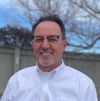Plenary Session: Old Wine in New Bottles
Although there exists no perfect model that accurately or adequately reflects a foundational theory of North American conservation, numerous significant and notable successes in thought and achievement dot the conservation space. However, despite conservation’s abundant successes, we remain faced with unprecedented challenges surrounding both the physical world in which we live as well as the political and social climates that presently exist. Therefore, we must reflect on our past successes in both thought and action, become aware of the challenges and opportunities in our physical and sociopolitical landscapes, and strategically approach the future of conservation with a broader conservation vision. This plenary combines an awareness and acknowledgement for conservation’s past achievements, with the social context of today, to inform an approach for a broader conservation vision for tomorrow.
Plenary Presenter Bios
 DNR Director Scott Bowen brings a long history of public service to Michigan through a variety of positions – as a member of the City Commission in Grand Rapids, as a district court judge, and later as director of the Office of State Employer under Gov. Jennifer Granholm, and as director of the Lottery Commission under Gov. Granholm and Gov. Rick Snyder. Bowen has served as a Grand Rapids city commissioner and later as a judge of the 62-A District Court in Wyoming, Michigan, after being appointed to the bench by Gov. Granholm in 2003. That appointment came while he was a partner at McInerney & Bowen, having previously founded the firm of Bowen, Distel & Haynes P.L.C. Bowen also was city attorney for multiple West Michigan cities and worked as special assistant attorney general for the Michigan Department of Transportation. His career afforded Bowen valuable experience in cabinet-level work in state government; relationship building at the local, regional and state level; red tape reduction that allows people to focus on doing their best work; and the importance of listening and learning before acting.
DNR Director Scott Bowen brings a long history of public service to Michigan through a variety of positions – as a member of the City Commission in Grand Rapids, as a district court judge, and later as director of the Office of State Employer under Gov. Jennifer Granholm, and as director of the Lottery Commission under Gov. Granholm and Gov. Rick Snyder. Bowen has served as a Grand Rapids city commissioner and later as a judge of the 62-A District Court in Wyoming, Michigan, after being appointed to the bench by Gov. Granholm in 2003. That appointment came while he was a partner at McInerney & Bowen, having previously founded the firm of Bowen, Distel & Haynes P.L.C. Bowen also was city attorney for multiple West Michigan cities and worked as special assistant attorney general for the Michigan Department of Transportation. His career afforded Bowen valuable experience in cabinet-level work in state government; relationship building at the local, regional and state level; red tape reduction that allows people to focus on doing their best work; and the importance of listening and learning before acting.
 Tony Wasley serves as the President of the Wildlife Management Institute (WMI), a 113-year-old, non-profit conservation organization dedicated to science-based, professional wildlife management. Tony is a member of the American Wildlife Conservation Partners, sits on the board for the Council to Advance Hunting and Shooting Sports, chairs the Executive Committee for Conservation without Conflict, and is a member of Theodore Roosevelt Conservation Partnership’s Policy Committee. He is a professional member of the Boone and Crockett Club and The Wildlife Society. Prior to joining WMI, Tony had a 26-year career at the Nevada Department of Wildlife during which he served as Director for 10 years. Tony also served as Chairman of the North American Wetland Conservation Council, on the Departments of Interior and Agriculture’s Hunting and Wildlife Conservation Council, President of the Association of Fish and Wildlife Agencies, President of the Western Association of Fish and Wildlife Agencies, and as Chairman of the Intermountain West Joint Venture Management Board, Pacific Flyway Council, and Colorado River Fish and Wildlife Council.
Tony Wasley serves as the President of the Wildlife Management Institute (WMI), a 113-year-old, non-profit conservation organization dedicated to science-based, professional wildlife management. Tony is a member of the American Wildlife Conservation Partners, sits on the board for the Council to Advance Hunting and Shooting Sports, chairs the Executive Committee for Conservation without Conflict, and is a member of Theodore Roosevelt Conservation Partnership’s Policy Committee. He is a professional member of the Boone and Crockett Club and The Wildlife Society. Prior to joining WMI, Tony had a 26-year career at the Nevada Department of Wildlife during which he served as Director for 10 years. Tony also served as Chairman of the North American Wetland Conservation Council, on the Departments of Interior and Agriculture’s Hunting and Wildlife Conservation Council, President of the Association of Fish and Wildlife Agencies, President of the Western Association of Fish and Wildlife Agencies, and as Chairman of the Intermountain West Joint Venture Management Board, Pacific Flyway Council, and Colorado River Fish and Wildlife Council.
 Mark Madison has been the national historian for the U.S. Fish and Wildlife Service (USFWS) since 1999. In that role he supervises the USFWS Museum/Archives with 500,000 historic items chronicling the agency’s history over the last century and a half. These artifacts include Rachel Carson’s private library, the histories of gray wolf and California condor restoration, and artifacts that tell the story of the National Wildlife Refuge System going back to Theodore Roosevelt. He also teaches environmental history, environmental ethics, environmental policy, and environmental film at the USFWS’s National Conservation Training Center and Shepherd University. He has taught at Harvard and the University of Melbourne (Australia). He also spent 3 years doing tropical reforestation as a Peace Corps volunteer in the Philippines. His office is 10 minutes from the Potomac River and, as a result, he fly fishes every day and sometimes even catches a fish or two!
Mark Madison has been the national historian for the U.S. Fish and Wildlife Service (USFWS) since 1999. In that role he supervises the USFWS Museum/Archives with 500,000 historic items chronicling the agency’s history over the last century and a half. These artifacts include Rachel Carson’s private library, the histories of gray wolf and California condor restoration, and artifacts that tell the story of the National Wildlife Refuge System going back to Theodore Roosevelt. He also teaches environmental history, environmental ethics, environmental policy, and environmental film at the USFWS’s National Conservation Training Center and Shepherd University. He has taught at Harvard and the University of Melbourne (Australia). He also spent 3 years doing tropical reforestation as a Peace Corps volunteer in the Philippines. His office is 10 minutes from the Potomac River and, as a result, he fly fishes every day and sometimes even catches a fish or two!
 Leeann Sullivan is a political scientist who has spent over 10 years studying and teaching in the area of wildlife conservation and environmental policy. Her work broadly explores how science, culture, and politics become entangled in our management practices and how that shapes the legitimacy of our conservation institutions. Leeann’s work is deeply interdisciplinary, blending social theory and applied social science to gain a deep understanding of where we’ve been, how we got here, and where we can go from here. Leeann currently serves as the Research Coordinator for Maine’s Permanent Commission on the Status of Racial, Indigenous, and Tribal Populations where she manages projects related to food, wildlife, and outdoor access for marginalized communities. She is also affiliated faculty in the Department of Human Dimensions of Natural Resources at Colorado State University. Leeann has taught courses on wildlife and society, environmental politics, conservation policy and governance, environmental justice and food sovereignty, conflict and consensus, and research methods at Colorado State University, Colby College, and Boston College.
Leeann Sullivan is a political scientist who has spent over 10 years studying and teaching in the area of wildlife conservation and environmental policy. Her work broadly explores how science, culture, and politics become entangled in our management practices and how that shapes the legitimacy of our conservation institutions. Leeann’s work is deeply interdisciplinary, blending social theory and applied social science to gain a deep understanding of where we’ve been, how we got here, and where we can go from here. Leeann currently serves as the Research Coordinator for Maine’s Permanent Commission on the Status of Racial, Indigenous, and Tribal Populations where she manages projects related to food, wildlife, and outdoor access for marginalized communities. She is also affiliated faculty in the Department of Human Dimensions of Natural Resources at Colorado State University. Leeann has taught courses on wildlife and society, environmental politics, conservation policy and governance, environmental justice and food sovereignty, conflict and consensus, and research methods at Colorado State University, Colby College, and Boston College.
 For nearly 30 years, Francine Madden, Principal of Constructive Conflict and Executive Director of the Center for Conservation Peacebuilding (CPeace), has maintained a proven track record of effectively, impartially, and devotedly intervening in complex wildlife conservation conflicts. Whether the conflict is over wolves, tigers, mountain gorillas or Galapagos tortoises, these social conflicts are a microcosm of the larger societal conflicts they are embedded in. As such, Francine uses these lightening rod issues as entry points to reconcile the deep-rooted, systemic conflicts that impede stability, security and progress for all. By engaging as a neutral third party and transforming relationships and dialogue processes, Francine’s critical and comprehensive support results in lasting shared wins for people, their way of life and conservation. Francine’s work has been featured in The Washington Post, Bloomberg Businessweek and Wall Street Journal.
For nearly 30 years, Francine Madden, Principal of Constructive Conflict and Executive Director of the Center for Conservation Peacebuilding (CPeace), has maintained a proven track record of effectively, impartially, and devotedly intervening in complex wildlife conservation conflicts. Whether the conflict is over wolves, tigers, mountain gorillas or Galapagos tortoises, these social conflicts are a microcosm of the larger societal conflicts they are embedded in. As such, Francine uses these lightening rod issues as entry points to reconcile the deep-rooted, systemic conflicts that impede stability, security and progress for all. By engaging as a neutral third party and transforming relationships and dialogue processes, Francine’s critical and comprehensive support results in lasting shared wins for people, their way of life and conservation. Francine’s work has been featured in The Washington Post, Bloomberg Businessweek and Wall Street Journal.
Special Session 1
Conservation Strategies Informed by Wildlife Values
Thanks to social science constructs, deep insights have been gained about the way people in North America and beyond value wildlife. These insights have important implications for organizations who manage fish and wildlife. Mutualist and traditionalist wildlife value orientations are, almost by definition, most frequently at odds with one another regarding acceptable wildlife management actions. These realities coupled with increasingly complex conservation and societal changes such as globalization and modernization have resulted in greater discord and diversion of already limited resources. How can the conservation community tap into these diverse perspectives and move from a “triage” approach to one that is more proactive and sustainable? This session will explore building a shared understanding of values and identify outcomes that help agencies increase awareness and effectively communicate with (and about) interested groups with different values.
Special Session 2
Conservation’s Reflection Deficit Disorder
Today’s conservation professionals frequently pursue urgent and unprecedented challenges absent a complete and accurate awareness of the historical context of past conservation mindsets and efforts. Conservation has evolved significantly, and at times rapidly, in the past 150 years witnessing both great success and disheartening failures. For the conservation community to better adapt to current and future challenges, we need to reflect on where we have been, what we have done, and the results of those historic efforts. Natural selection promotes beneficial adaptations without the conscious awareness of the beneficiaries. As self-aware and introspective species, with awareness of selective forces, we possess the unique ability to use forethought and predictability to inform the evolution of perspective and effort. As we continue to build and sustain our conservation efforts, it is imperative that we reflect on our past to prepare for our future. We must recognize that it is more important than ever to reflect in order to appreciate where we are so that we can better prepare for where we need to go.
This session will present attendees with a purposeful pause for reflection of conservation history to facilitate a fuller appreciation of where we are as an institution so that we can better pursue durable results. Presenters will examine conservation’s past in order to understand where conservation has been, its successes and failures, and the motivations and consequences of those historic efforts. Attendees will leave this session with a better understanding of how conservation has evolved within North America and why the existing institutions and mental models exist. Attendees will be challenged to apply the current conservation construct as informed by history in contemplating the future system of conservation.
Special Session 3
The End of the Beginning: Getting Relevancy Work on a Firm Foundation
“This work is difficult!”—a phrase that has been increasingly echoed among dozens of state agencies, social science consultants, and practitioners diligently working to engage and serve broader constituencies in conservation. Even the 60-plus-person team who drafted the 2019 Relevancy Roadmap warned that, “there are no quick or easy fixes” to increasing conservation relevancy for more people, and that the work “will require innovative, thoughtful, and inclusive approaches that will take time and resources to implement.” If the last 5 years of pilot programs, first projects, and strategy testing has taught us anything about relevancy-related work, it’s that the aforementioned cautionary predictions were prophetic if not downright understated.
But there is a silver lining. Our current understanding of the challenging realities embedded within relevancy work comes not from educated guesses, but rather a significant body of experimental knowledge documented and catalogued within the relevancy-practitioner community. Where prior relevancy symposia or workshops generally proposed prospective strategies to increasing conservation relevancy or provided in-process updates, current discussions about relevancy can now be informed by what has actually happened on the ground when strategies are applied in real-world systems. This session will present the results of experimental approaches to relevancy work that have been completed in the past few years, provide guidance on how to use newly developed resources and training materials, and hear perspectives from those who have been the focus of relevancy projects.
Special Session 4
Improving Conservation Outcomes through Collaboration, Technology, and Endangered Species Act Policy Innovations
Effectively addressing the challenges to conserve imperiled species under the Endangered Species Act (ESA) and protect the ecosystems upon which they depend requires a more systematic way of thinking about what needs to be done, where, and why. It will also require careful consideration about how these conservation actions are likely to affect both landowners and fish and wildlife. This session will showcase innovative and collaborative conservation approaches developed and implemented through federal and state programs and private lands initiatives. As conservation professionals reflect on 50 years of the ESA, we must recognize that it is more important than ever to continue to build and sustain our partnership networks to achieve shared priorities, resilient landscapes, and species conservation.
In that spirit of partnership and collaboration, this session will encourage active participation and engagement by including opportunities for audience members to ask questions and share their insights. A dedicated Q&A session will provide a platform for dialogue between the audience and panelists, enabling the exchange of ideas, experiences, and potential solutions. Additionally, interactive polls or surveys will be utilized to gauge audience perspectives and opinions on key topics discussed.